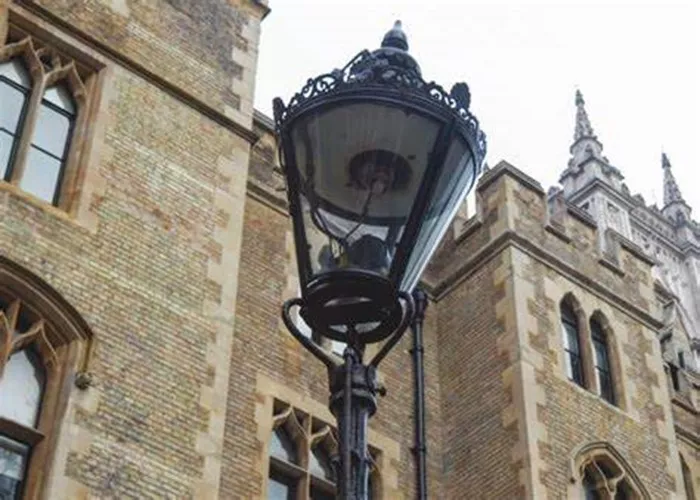January 28 has witnessed several significant events throughout British history. This article will explore these events in detail, providing context and analysis to understand their importance.
What Happened on January 28 in British History?
1. Birth of Henry VII (1457)
On January 28, 1457, Henry VII, the founder of the Tudor dynasty, was born. He played a crucial role in English history by ending the Wars of the Roses, a series of civil wars for control of the English throne. Henry’s victory at the Battle of Bosworth Field in 1485 marked the end of the Plantagenet dynasty and ushered in a new era for England.Henry VII was the son of Edmund Tudor and Margaret Beaufort. His claim to the throne was through his mother, who was a descendant of Edward III. After his victory, he married Elizabeth of York, thereby uniting the feuding houses of Lancaster and York. This union helped to stabilize England after decades of conflict.Henry VII’s reign is noted for its focus on consolidating power and establishing a strong monarchy. He implemented financial reforms that strengthened the royal treasury and reduced corruption within his government. His legacy laid the groundwork for future monarchs, particularly his son Henry VIII, who would further influence English history.
2. Death of Henry VIII (1547)
On January 28, 1547, Henry VIII passed away at the age of 55. His death marked a significant turning point in English history as it ended a tumultuous reign characterized by political intrigue and religious transformation. Henry VIII is best known for his six marriages and his role in the separation of the Church of England from the Roman Catholic Church.Henry’s desire for a male heir led to multiple marriages and significant religious changes. His first marriage to Catherine of Aragon was annulled after she failed to produce a male heir, leading him to marry Anne Boleyn. The subsequent break with Rome allowed him to establish himself as the Supreme Head of the Church of England.Upon his death, his nine-year-old son Edward VI ascended to the throne. Edward’s reign would see further Protestant reforms, continuing Henry’s legacy but also leading to conflicts that would shape England’s religious landscape for years to come.
3. Death of Sir Francis Drake (1596)
Sir Francis Drake died on January 28, 1596, aboard his ship off Porto Bello, Panama. He was an iconic figure in Elizabethan England, known for his exploits as a seafarer and privateer. Drake was instrumental in defeating the Spanish Armada in 1588 and is often celebrated as one of England’s greatest naval heroes.Drake’s career began with privateering against Spanish ships, which earned him both wealth and notoriety. His circumnavigation of the globe from 1577 to 1580 made him a national hero and contributed significantly to England’s maritime reputation.His death marked the end of an era in English naval history as tensions with Spain continued to simmer. Drake’s legacy would influence future generations of explorers and naval commanders.
4. First Gas Lighting in London (1807)
On January 28, 1807, London became the first city in the world to be illuminated by gas lights. This innovation transformed urban life by extending productive hours into the night and significantly improving safety on city streets.The introduction of gas lighting was spearheaded by Frederick Albert Winsor, who sought to replace oil lamps with gas lamps for street lighting. The first gas-lit street was Pall Mall, which set a precedent for other cities around the world.Gas lighting not only enhanced public safety but also influenced social behavior by enabling evening activities such as dining out and attending theaters. This technological advancement marked a significant step toward modern urban living.
5. Lord North Becomes Prime Minister (1775)
Frederick North, Lord North, became Prime Minister on January 28, 1775. His tenure lasted until 1782 and was marked by significant events including the American Revolutionary War.North’s leadership faced immense challenges as tensions escalated between Britain and its American colonies. His policies aimed at maintaining British authority were met with resistance from colonists who sought greater autonomy.The loss of American colonies during North’s administration significantly impacted British politics and public opinion regarding colonial governance. His eventual resignation reflected growing discontent with how Britain handled colonial affairs.
6. The Publication of “Pride and Prejudice” (1813)
On January 28, 1813, Jane Austen’s beloved novel “Pride and Prejudice” was published for the first time. The novel has since become one of the most cherished works in English literature.”Pride and Prejudice” explores themes such as love, class distinctions, and individual agency through its protagonist Elizabeth Bennet. Austen’s keen observations about society and human relationships resonate with readers even today.The publication marked a significant moment in literary history as it showcased Austen’s unique voice and narrative style. Her work has inspired countless adaptations across various media.
Conclusion
January 28 holds a special place in British history due to its association with pivotal events that shaped the nation’s political landscape, cultural identity, and technological advancements. From royal births and deaths to groundbreaking innovations like gas lighting, each occurrence reflects broader societal changes that continue to influence modern Britain today.These historical moments not only highlight individual achievements but also underscore collective shifts within society that have defined British history over centuries. Understanding these events provides valuable insight into how past actions have shaped contemporary Britain and its global standing.
Related Topics:

